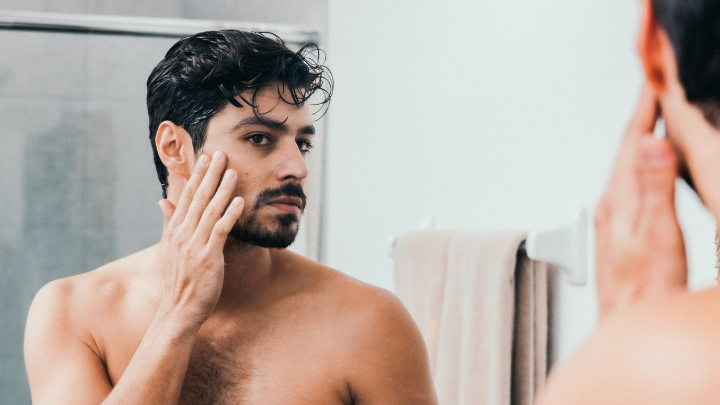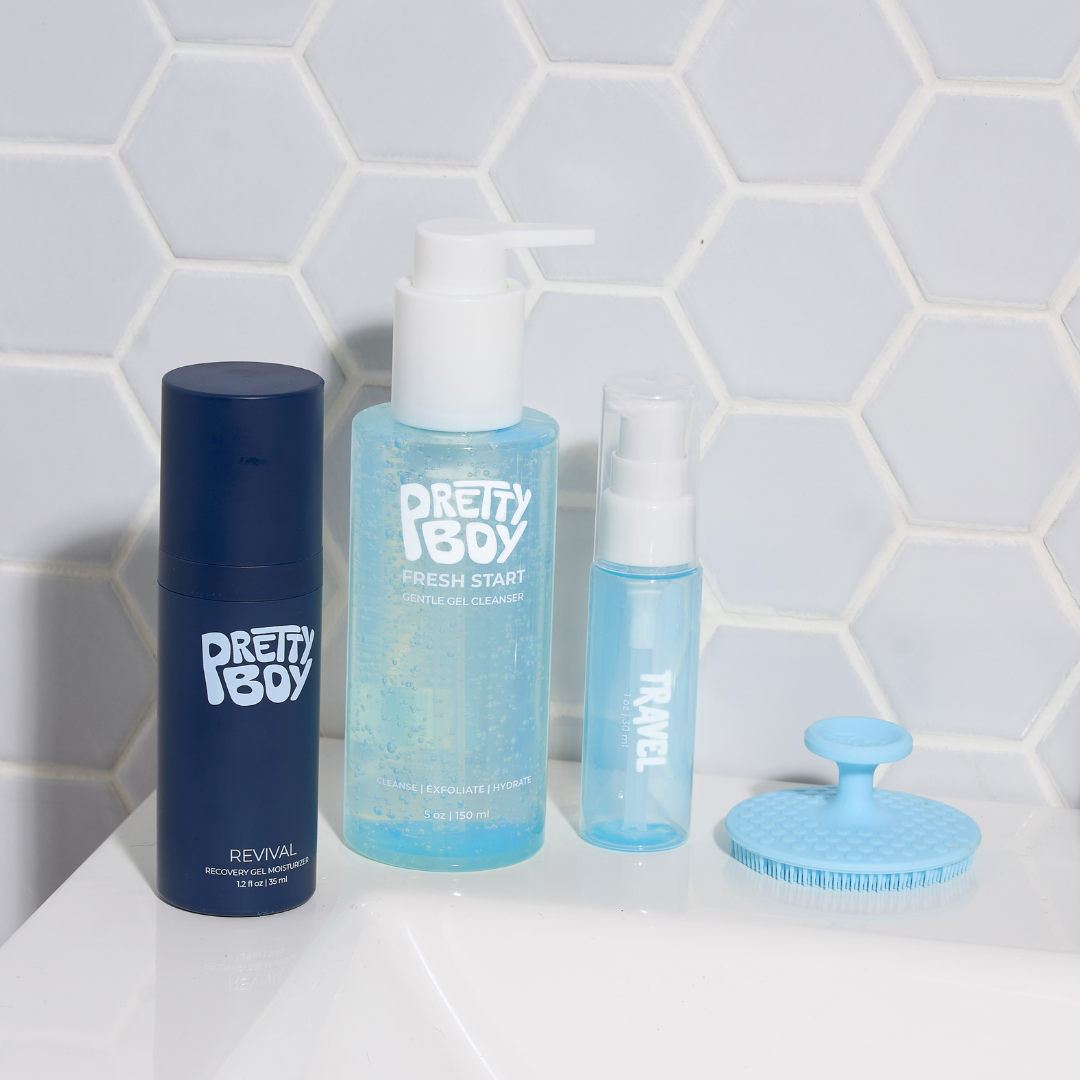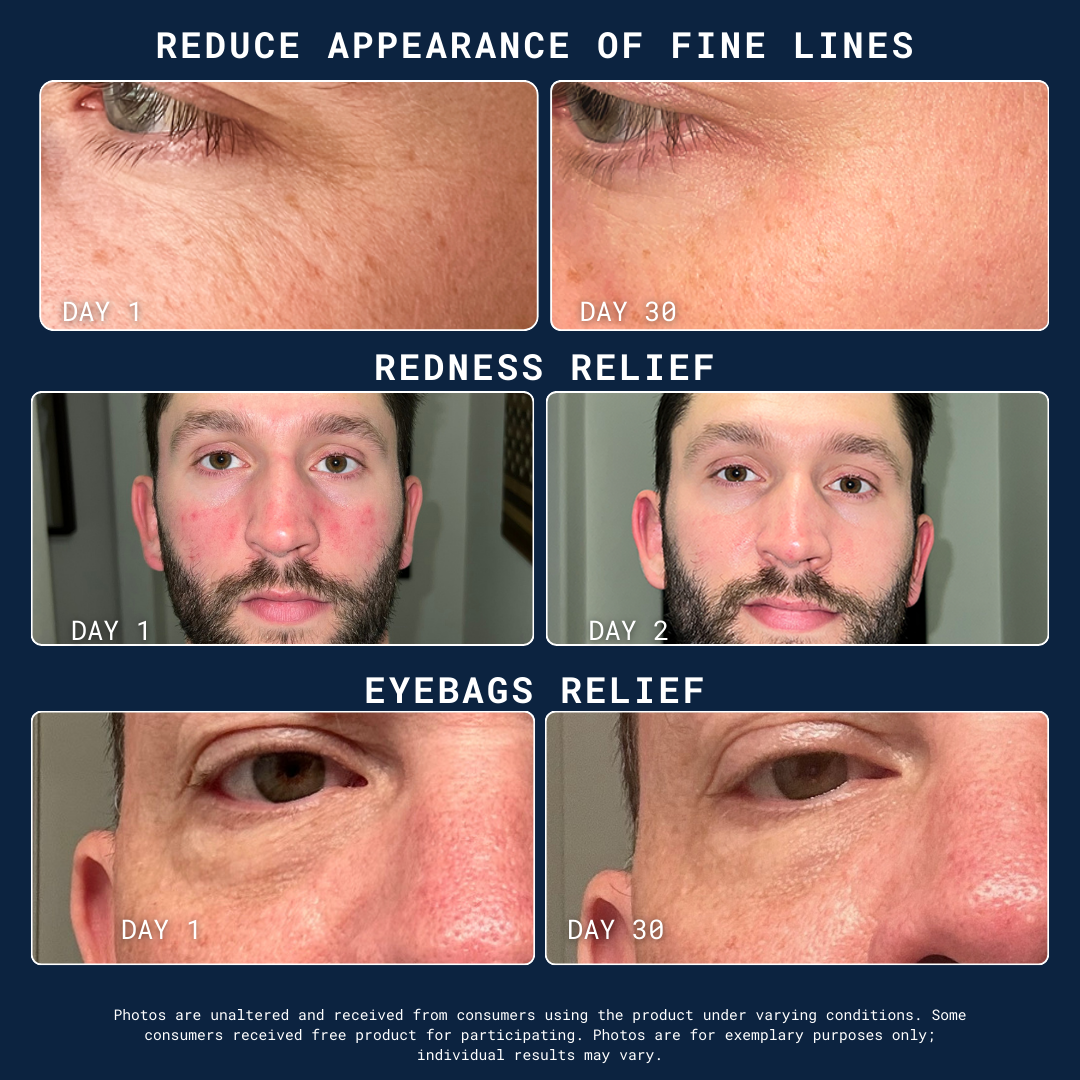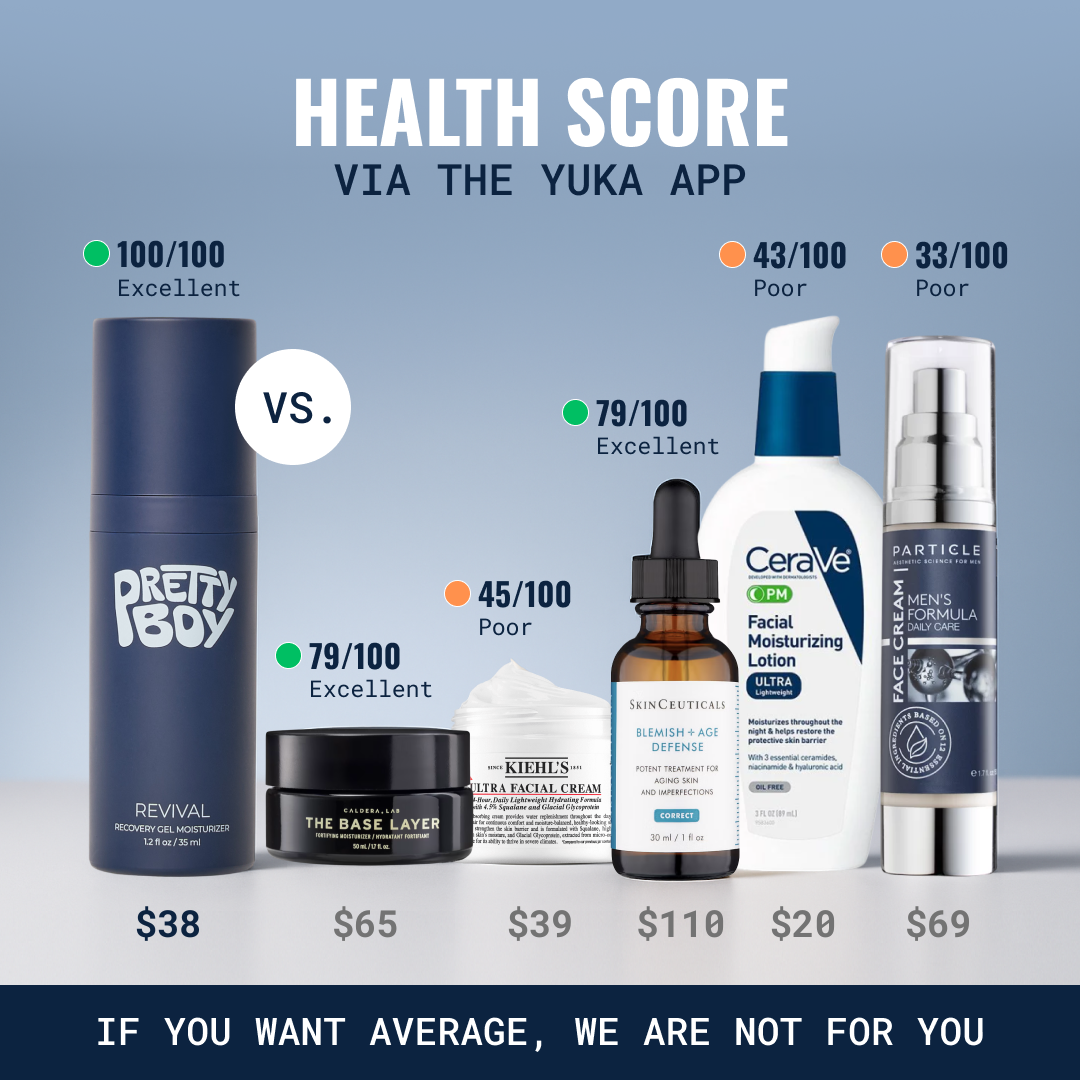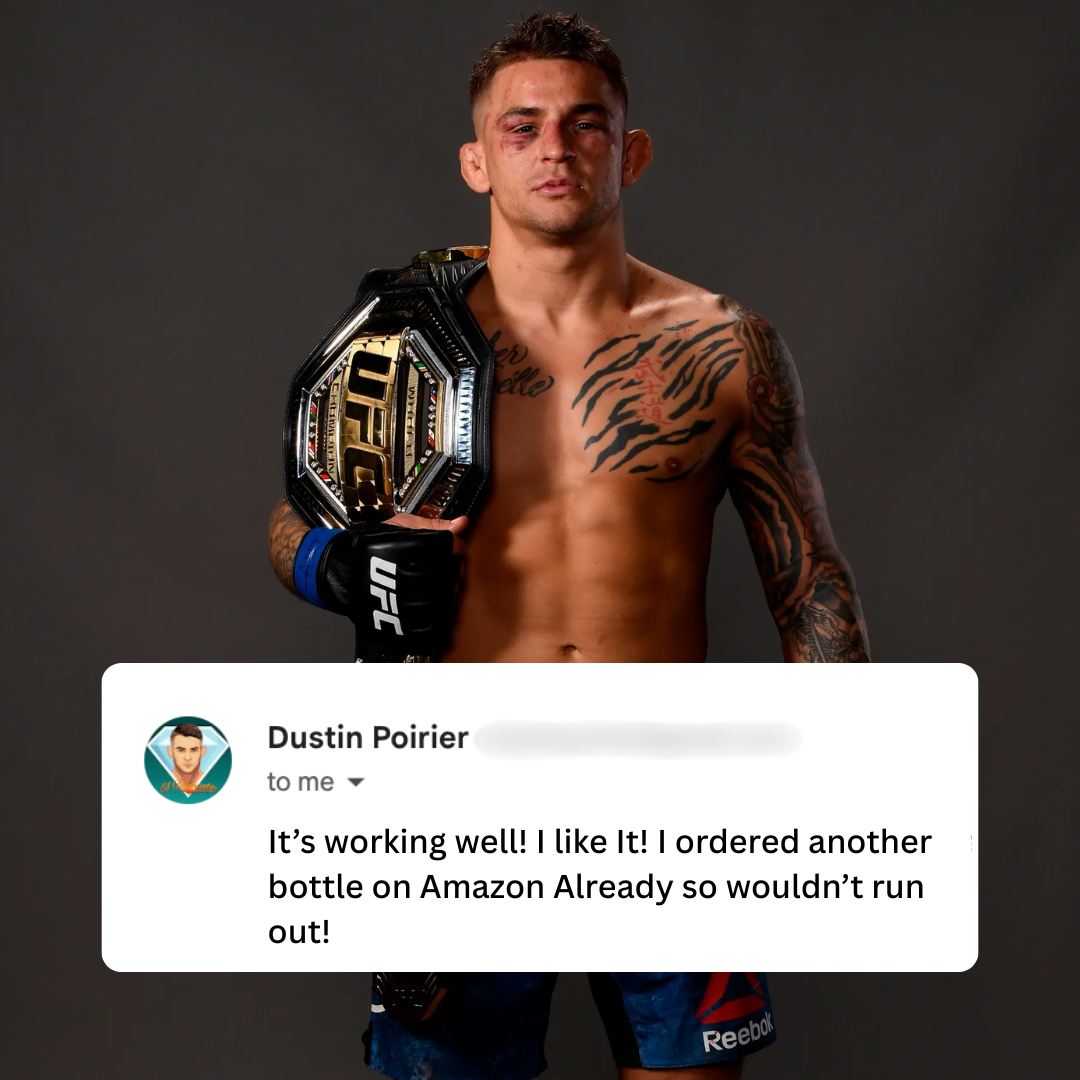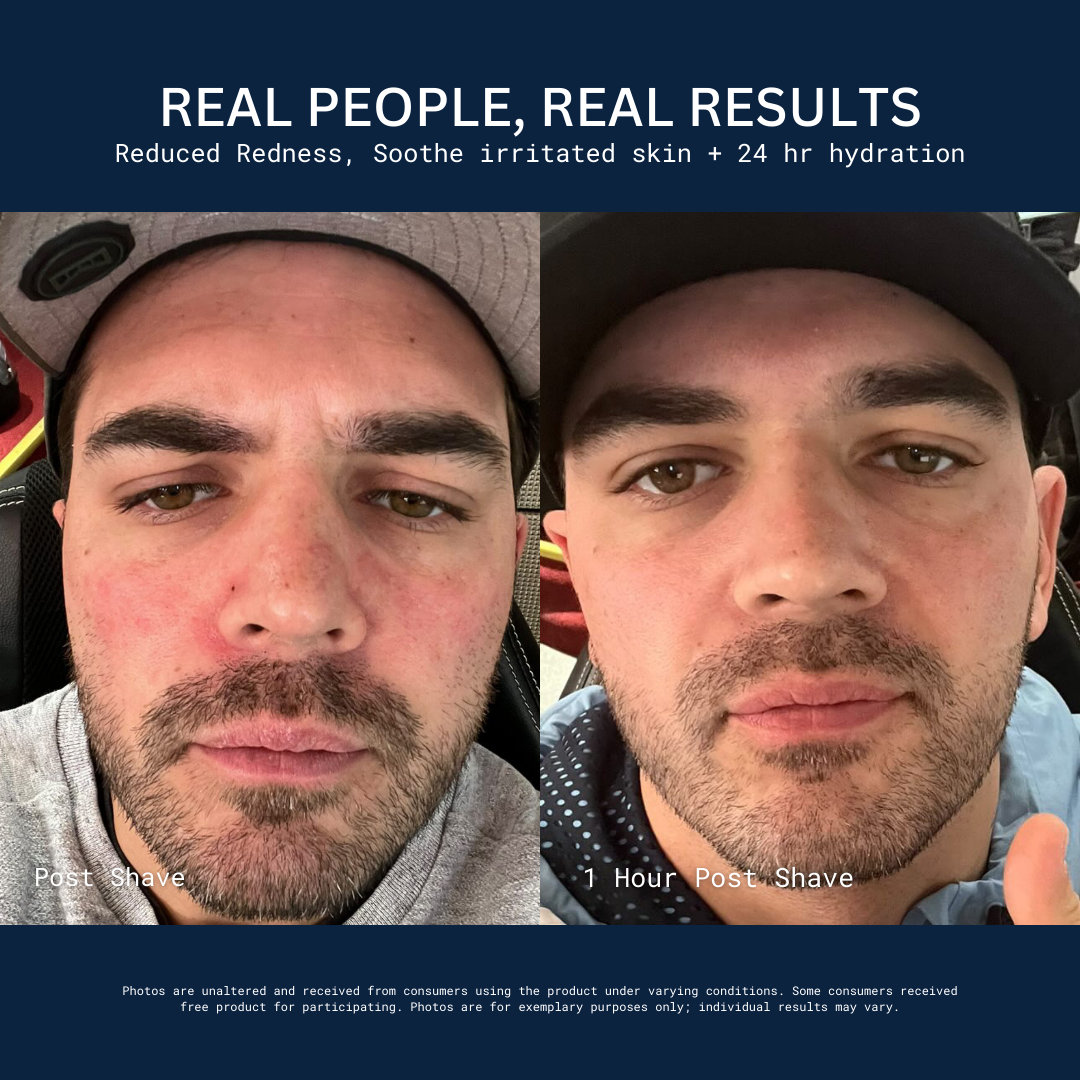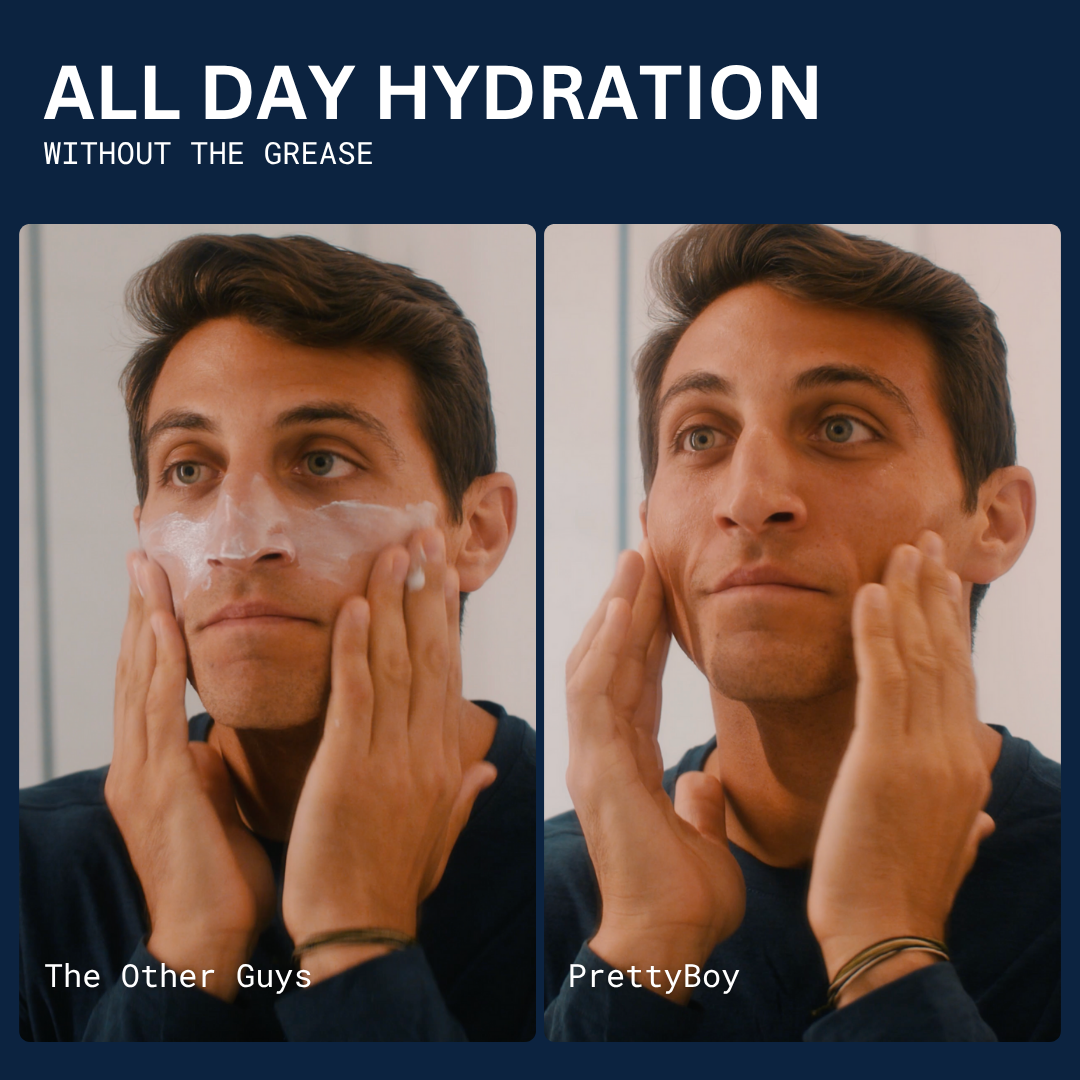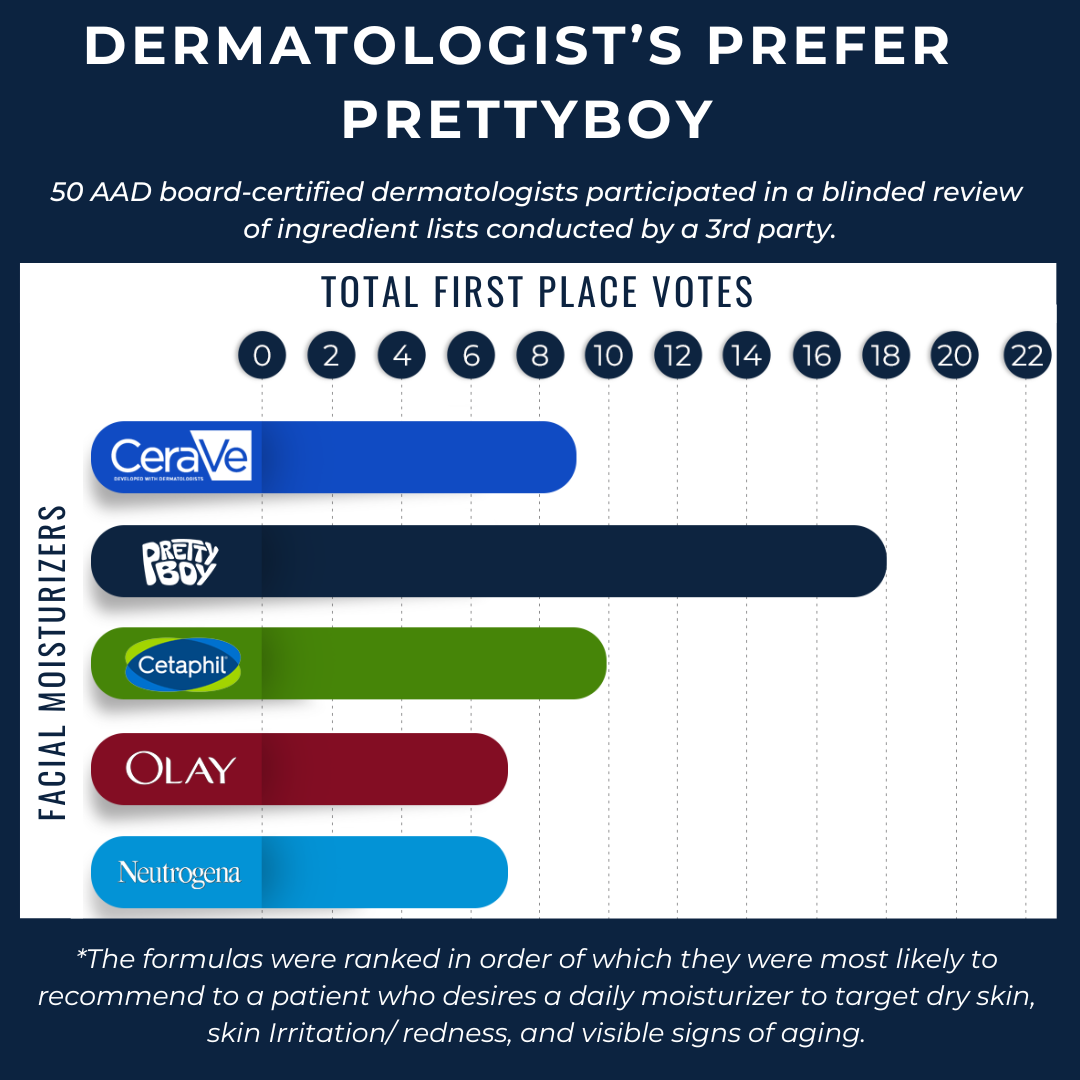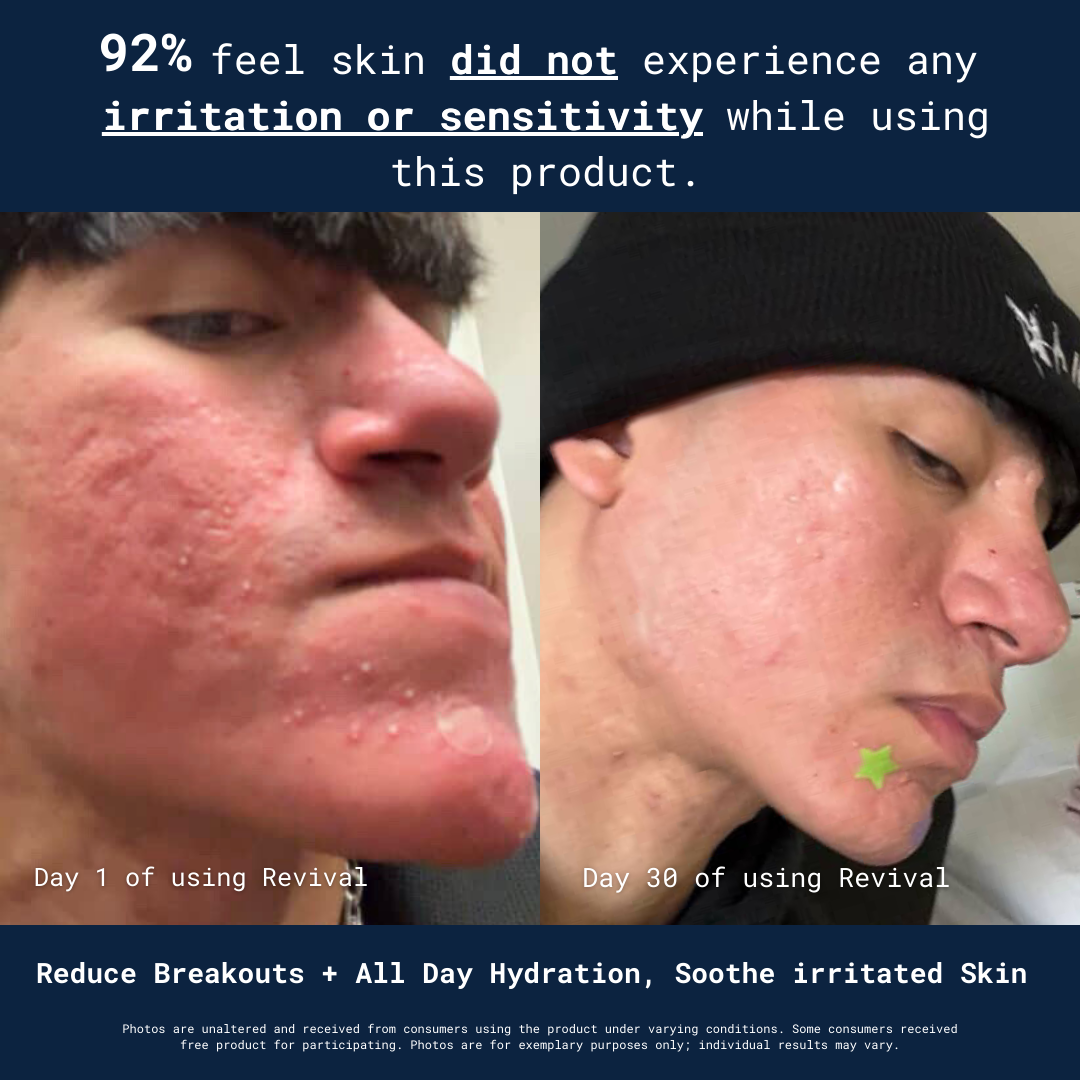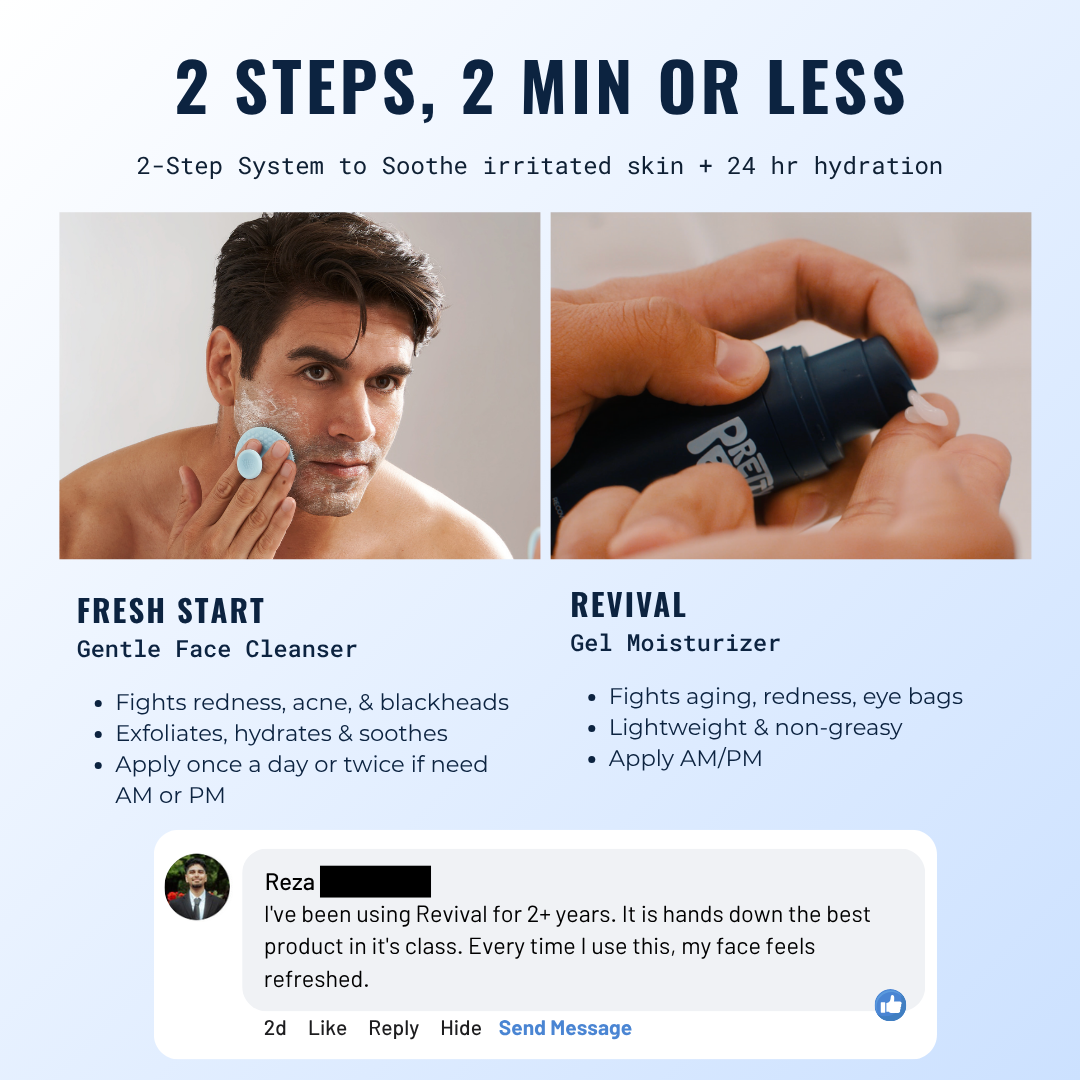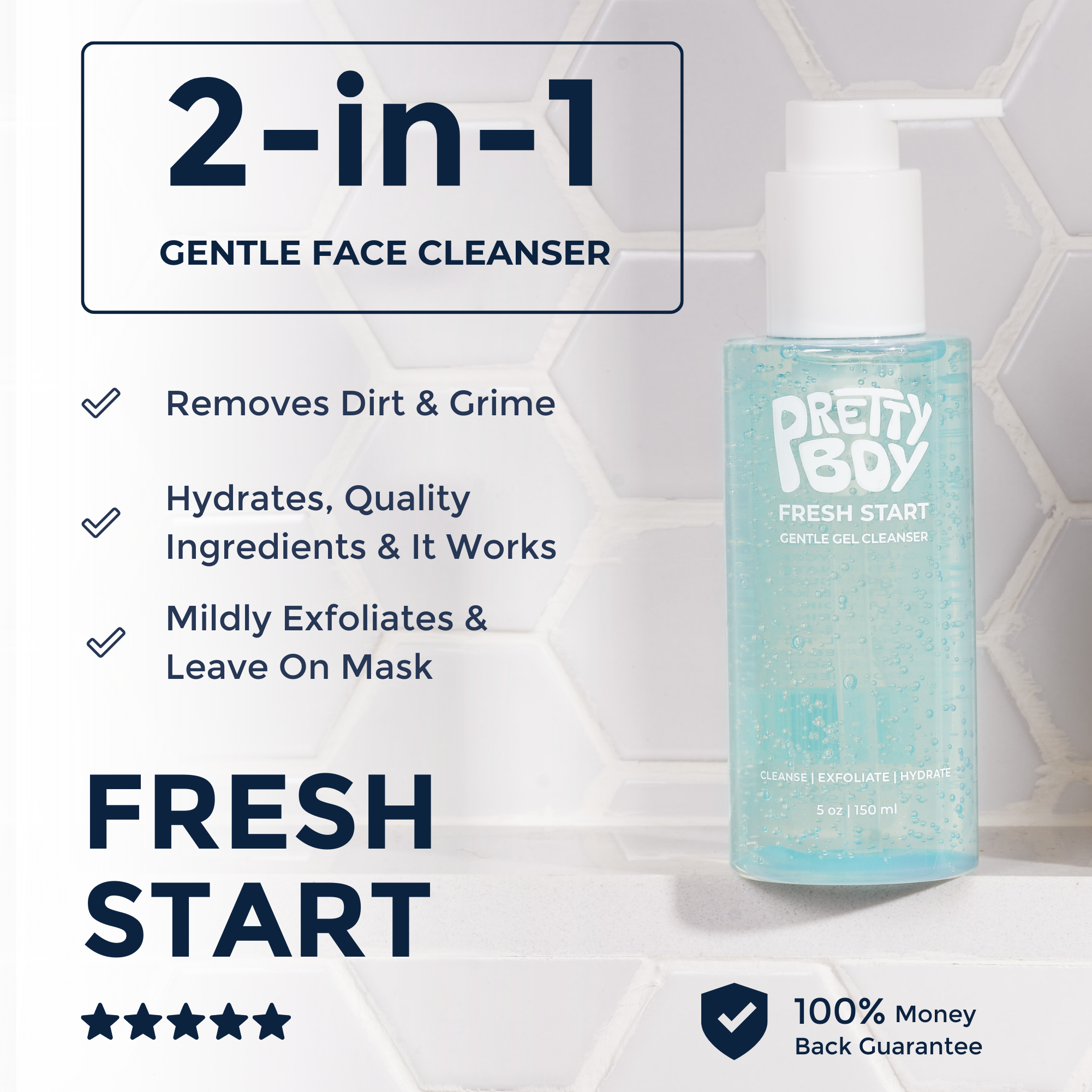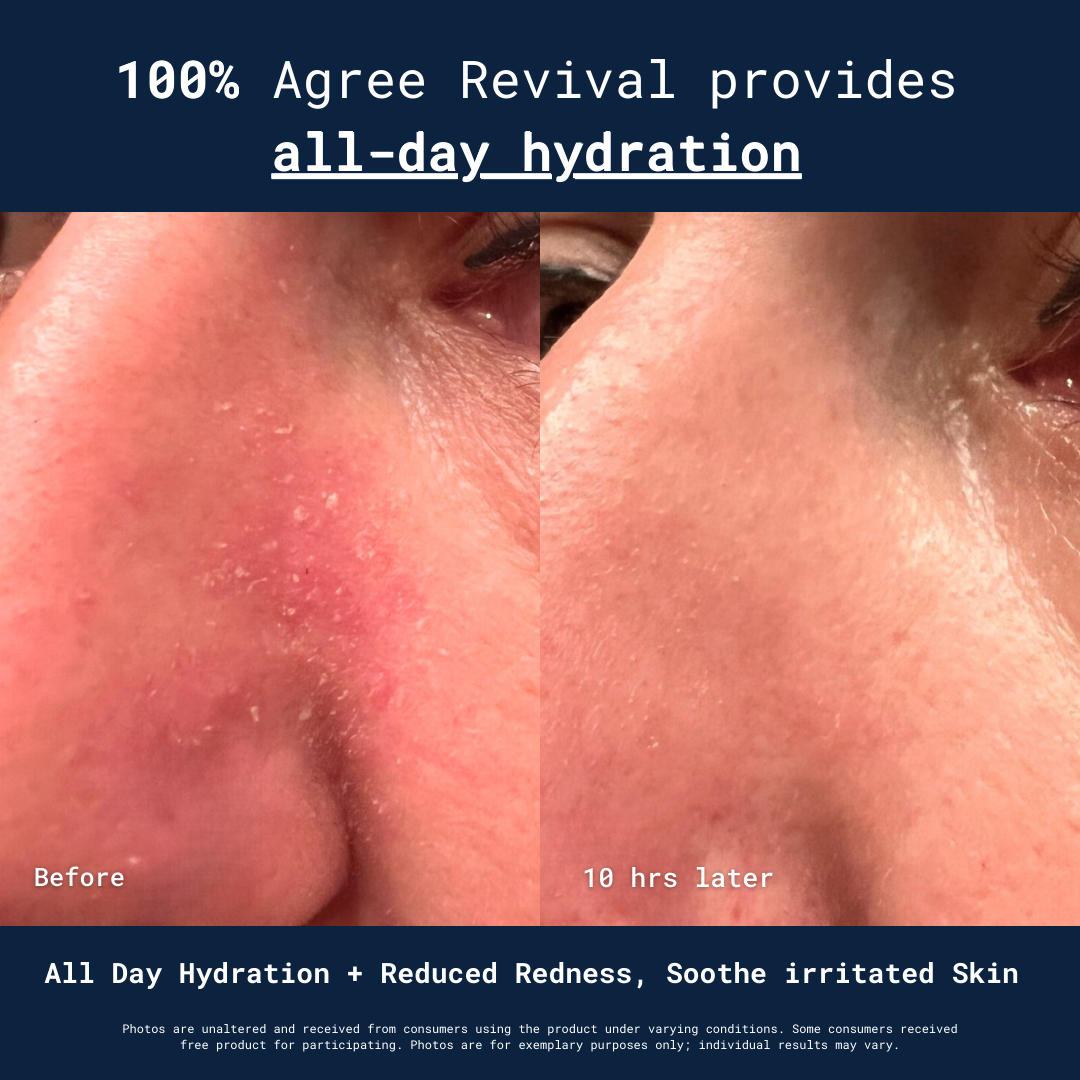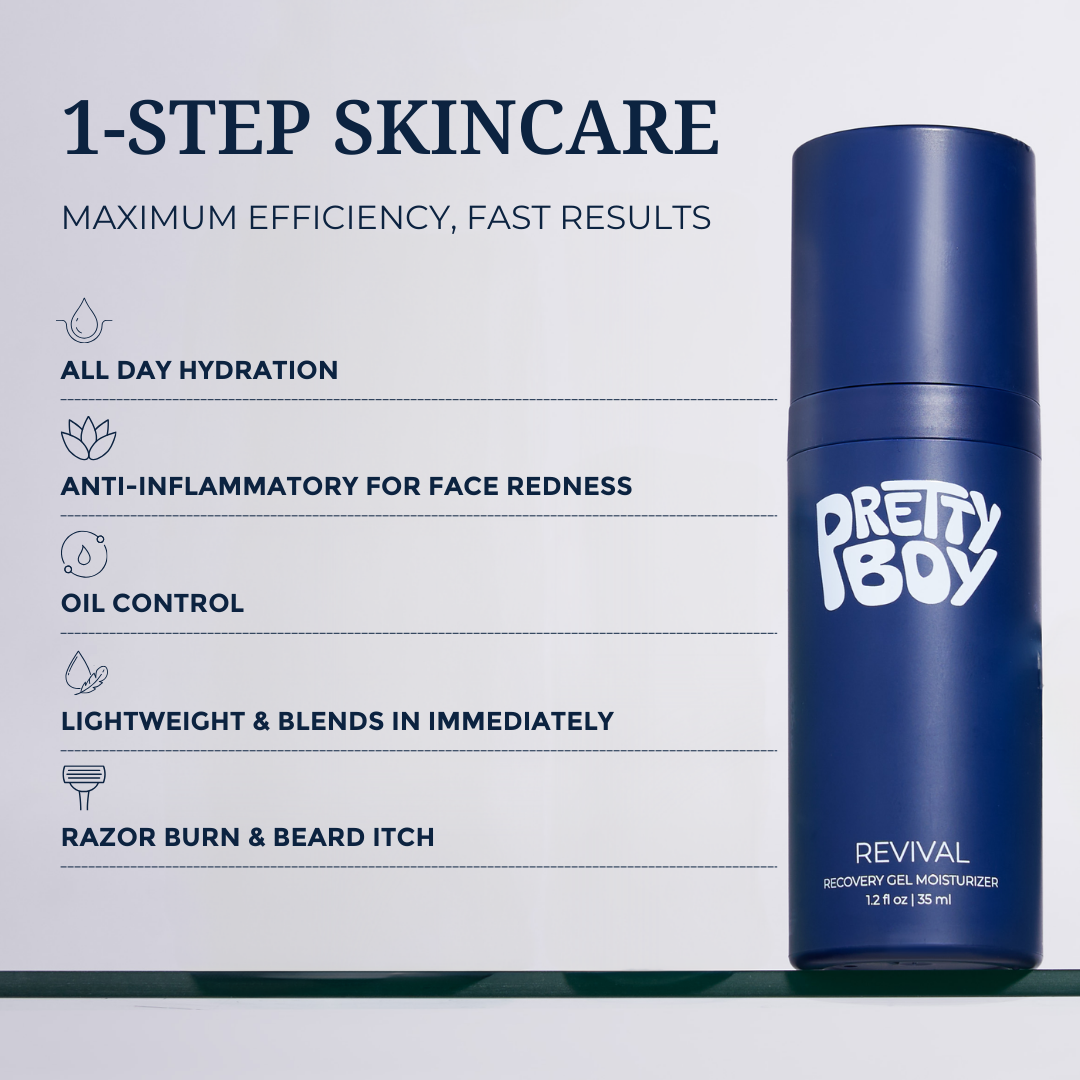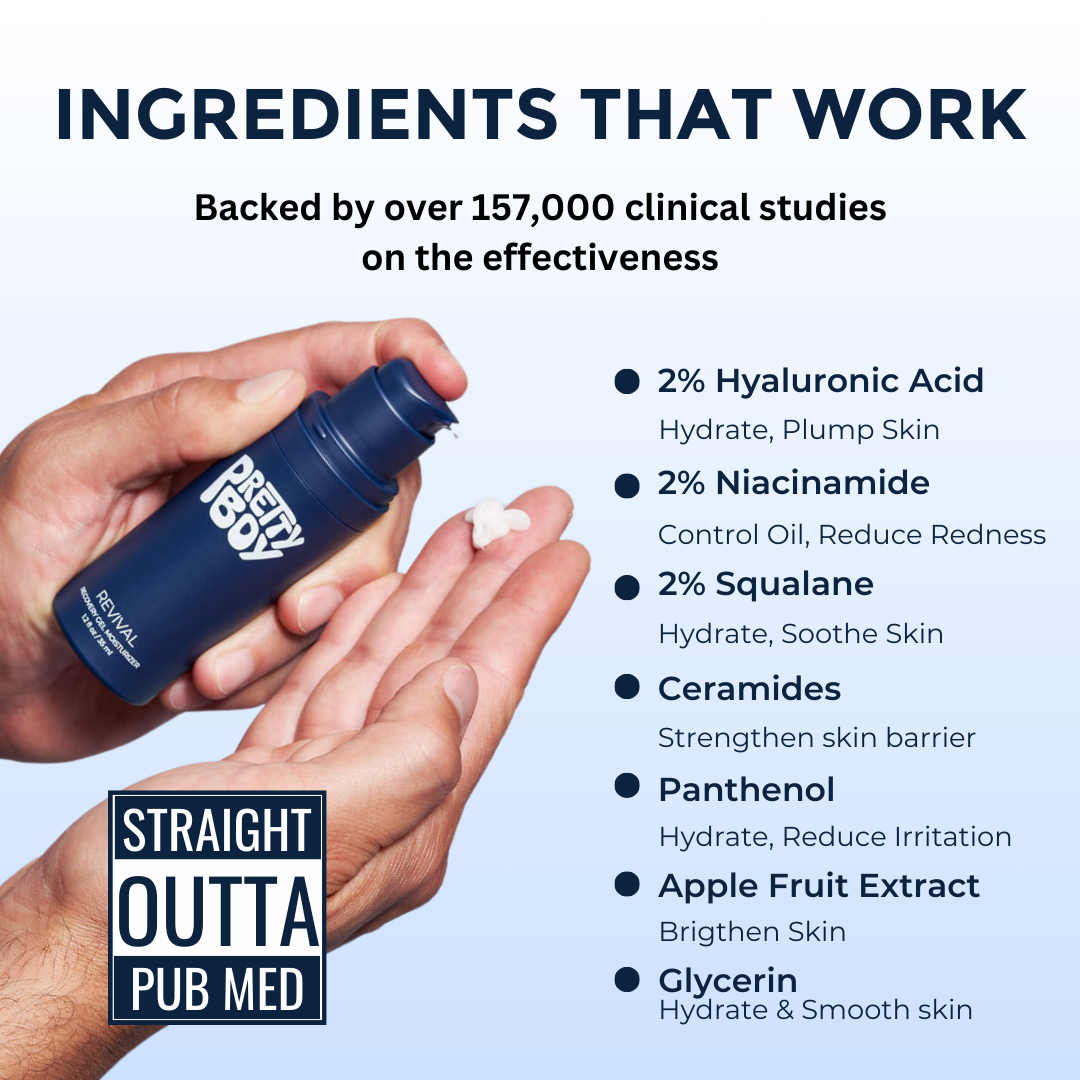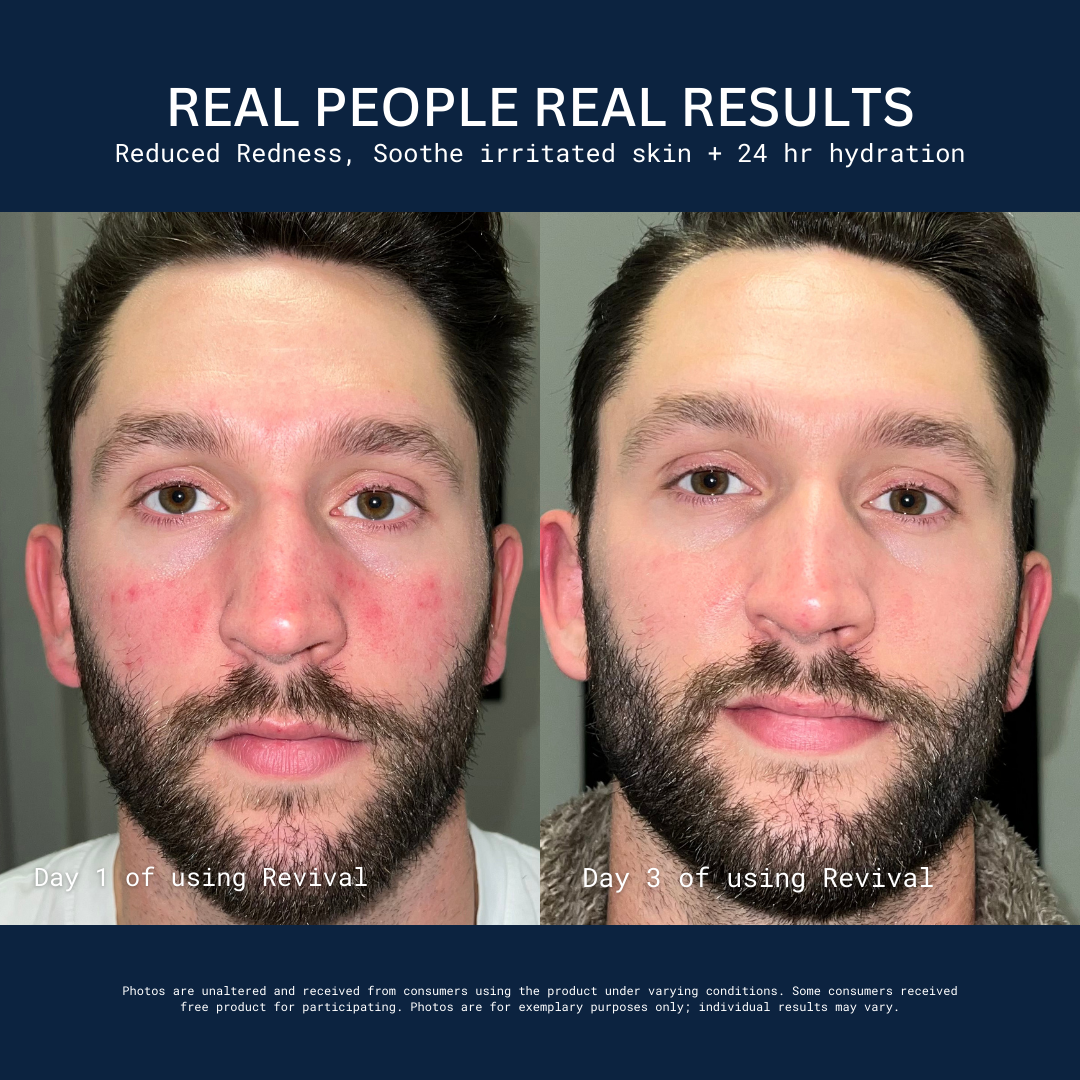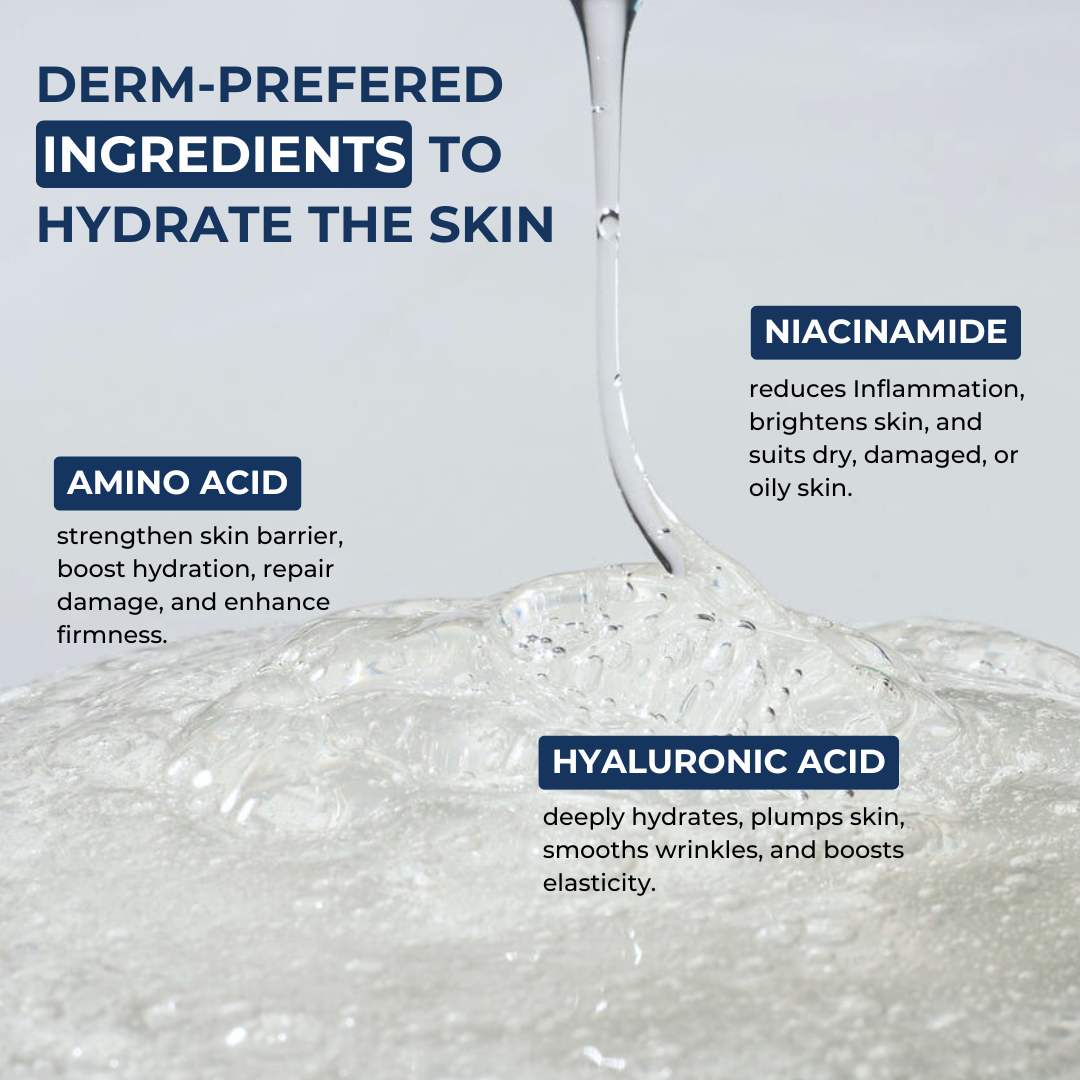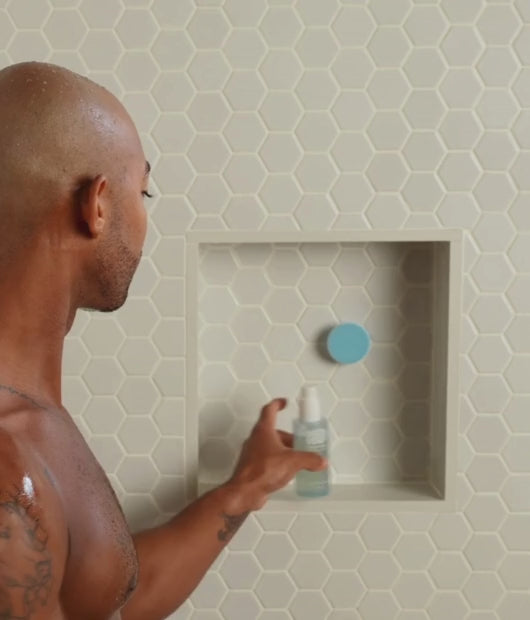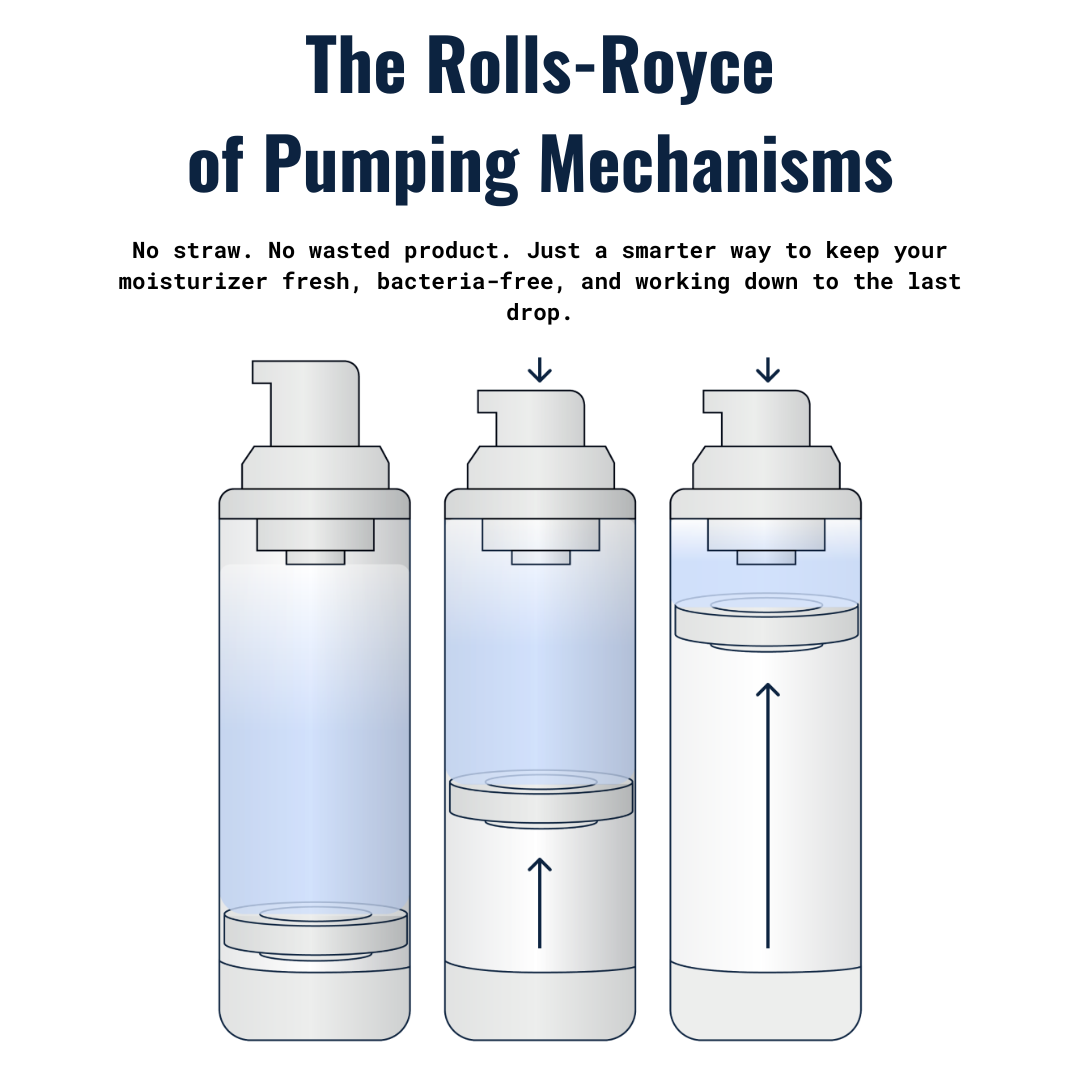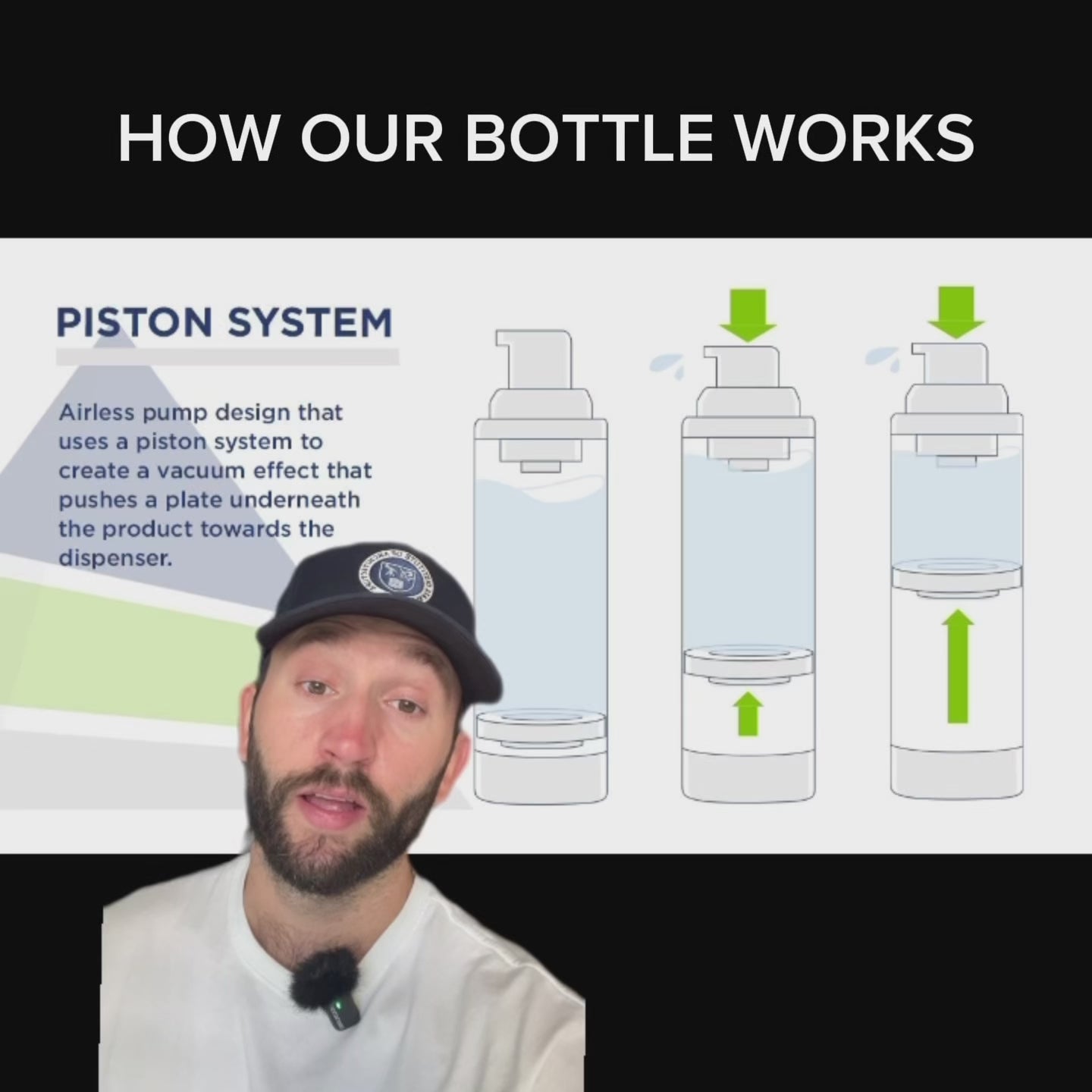Sunscreen can potentially cause acne, especially heavy, oil-based formulas that clog your pores. If you have acne-prone skin, look for sunscreens that are labeled as "non-comedogenic," "oil-free" or "water-based."
Sunscreen is the most important product in a man's skincare routine (Opens in a new window) (Opens in a new window) to keep your face from turning into a wrinkly piece of leather. Unfortunately, it's also a product that dudes often ignore before a beach day or pool party.
Sunscreen protects your skin from harsh UV rays and prevents signs of premature aging (Opens in a new window) (Opens in a new window) like wrinkles (Opens in a new window) (Opens in a new window) and eye bags (Opens in a new window) (Opens in a new window). The downside is that it can leave your skin feeling slick and greasy.
This leads to a common question: Can sunscreen cause acne breakouts?
We sat down with our resident dermatologist at PrettyBoy to explore the (potential) link between sunscreen and acne, how to treat breakouts caused by sunscreen, and what type of sunscreen to wear if you have acne-prone skin.
Can Sunscreen Cause Acne?
Sunscreen can cause acne or make existing breakouts worse, especially if the formula contains heavy occlusives like mineral oils, coconut oil, cocoa butter, or beeswax. These ingredients clog your pores, creating the perfect storm for acne breakouts (Opens in a new window) (Opens in a new window).
The good news is not all sunscreens cause acne. In fact, choosing the right sunscreen can actually prevent breakouts (more on that later).
Sunscreen's primary purpose is to shield your skin from harmful UV rays. But certain factors related to sunscreen usage can trigger breakouts for people prone to acne.
One reason is the presence of comedogenic ingredients in some sunscreen formulations. These ingredients have the potential to clog pores and trap oil, leading to the development of acne.
Further, heavy or occlusive sunscreens can create a barrier on the skin's surface, trapping sweat, dirt, and bacteria, which can worsen existing acne or trigger new breakouts.
Additionally, inadequate removal of sunscreen at the end of the day can leave residue on the skin, increasing the likelihood of clogged pores and acne formation.
Selecting non-comedogenic, oil-free, or mineral-based formulas can significantly minimize the risk of breakouts while still providing essential sun protection.
How to Get Rid of Acne From Sunscreen
We ain't letting a little SPF ruin your skin game. If you've noticed an increase in acne breakouts after using sunscreen (Opens in a new window) (Opens in a new window), follow these tips to tackle this issue:
-
Ditch that sunscreen that's acting like a secret agent for acne. Look for one that's labeled "non-comedogenic" or "oil-free." We're not letting any pore-clogging traitors in. Switch to a sunscreen with zinc oxide or titanium dioxide. These bad boys are less likely to mess with your pores and cause a rebellion on your face.
-
Cleanse your face twice a day, but don't go all Rambo on your skin. Use a gentle cleanser to kick out the dirt and grime without launching a full-scale assault on your face.
-
Moisturize like a boss. Keep your skin hydrated with a lightweight, oil-free moisturizer like Revival (Opens in a new window) (Opens in a new window) (Opens in a new window) (Opens in a new window) (Opens in a new window) (Opens in a new window). Dry skin is the enemy of clear skin, so we want to keep it plump and ready for action.
-
Hit those acne trouble spots with a targeted treatment. Something with salicylic acid or benzoyl peroxide should do the trick. We're nuking those zits.
Should You Still Wear Sunscreen If You Have Acne?
Everybody should wear sunscreen if the UV index is 5 or above, even if you have acne-prone skin. While the fear of sunscreen-induced acne is understandable, protecting your skin from the damaging effects of the sun is crucial.
Sun exposure can exacerbate acne and lead to hyperpigmentation, inflammation, and even premature aging. To strike a balance, choose lightweight and non-comedogenic sunscreens that won't clog your pores. With proper care and the right sunscreen, you can shield your skin from UV damage without sacrificing your quest for clear skin.
“Applying your sunscreen as the last part of your daily skincare regimen (Opens in a new window) (Opens in a new window) has several benefits: it helps lock in the moisturizer you already used, it will make it less likely to clog your pores, and it will allow it have a maximum protective effect,” says Prettyboy’s Dermatologist.
What Type of Sunscreen Is Best for Acne-Prone Skin?
When it comes to sunscreen for acne-prone skin, look for products labeled as face sunscreen instead of ones meant for the body. Specifically, the label should say "oil-free" or "non-comedogenic." Just make sure you ppt for a broad-spectrum sunscreen that protects against both UVA and UVB rays.
Niacinamide (Opens in a new window) (Opens in a new window) is another rockstar sunscreen ingredient to look for if you have acne-prone skin. It reduces redness and hyperpigmentation, regulates oil production, and improves skin texture.
Additionally, physical sunscreens containing zinc oxide or titanium dioxide can be beneficial, as they sit on the skin's surface and deflect UV rays rather than being absorbed. Experimenting with different formulations and finding what works best for your specific skin type is key to achieving effective sun protection without causing acne flare-ups.
“For many people with oily (Opens in a new window) (Opens in a new window) or sensitive skin, it may take time to find the right sunscreen," says PrettyBoy’s Dermatologist. "Water-based sunscreens (gel or lotion) are least likely to cause outbreaks. Regardless of your sunscreen choice, a wide-brim hat, UPF 50+ clothing and seeking shade between 10am-2pm are equally if not more important in preventing skin damage and premature aging.”
Get 6-in-1 Skincare With PrettyBoy
The stuff you put on your face after a long day in the sun is just as important as the stuff you put on before. That's where Revival comes in.
Our lightweight, gel-based formula (Opens in a new window) (Opens in a new window) is packed with ingredients that cool, soothe, and repair your skin barrier after a fun day in the sun. It's like an ice-cold Gatorade after a hangover, but for your face.
Ditch that bottle of aloe vera and upgrade to Revival for simple, 6-in-1 skincare.


